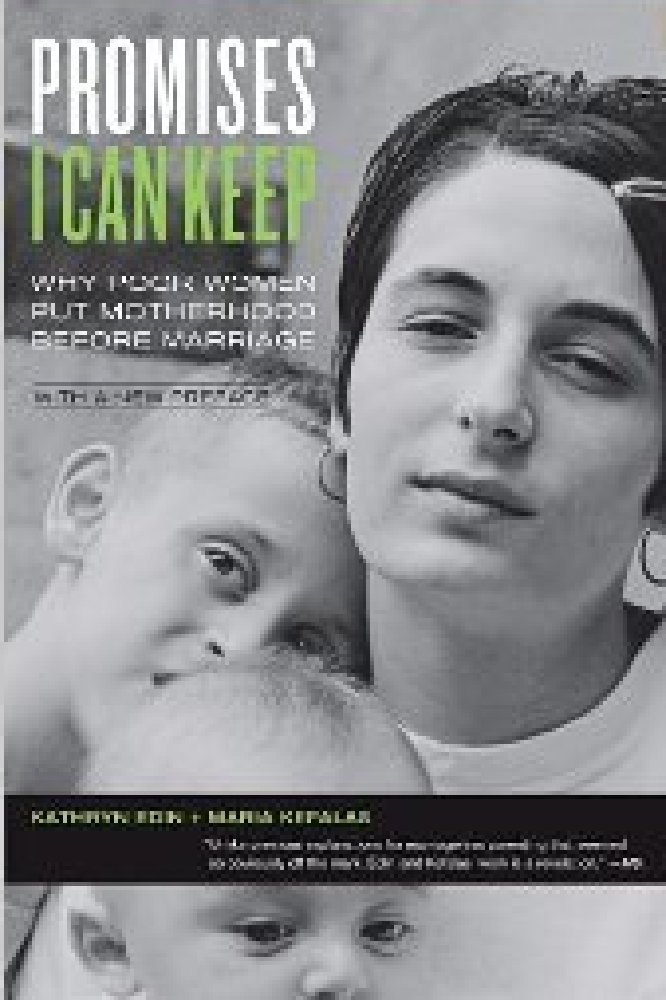
Promises I Can Keep
We are taught that having children out of wedlock is wrong. We are also taught that having children too young is stupid. Because of these commonly held conceptions, single teenage mothers form one of society’s most stigmatized groups.
However, this is not true in every social class—even in industrialized countries like the United States. Edin and Kafalas discuss how poor women choose single motherhood in their teens and prioritize having children over marriage and careers. Many of these women believe it is easier to be a good mother than it is to succeed in school, obtain a good job, survive toxic a childhood home, and capture a marriageable man. Most of the young subjects interviewed disclosed that they had hoped to have children at young ages, even if their already-born children were not exactly planned. Perhaps this is because, while many elements of life in poverty seem insurmountable, children are highly valued as a means to save a woman. Being a mother provides her with self-esteem, love, a sense of purpose, a reason to lead a responsible life, and most importantly, the means to transition from childhood into adulthood.
This presents a stark contrast to most middle and upper class women, who mark adulthood in entirely different ways. Middle and upper class women are increasingly postponing childbearing until after they have established themselves professionally and until after they have wed. Teenage motherhood outside of marriage would be straying from the intended track, and many middle and upper class people are condescending of women who do so.
Poor women most likely do not follow this pattern because of dissimilar goals to their middle and upper class counterparts. Besides believing that a stable career and a husband is less achievable than being a good mother, poor women also cannot understand a woman’s choice to delay childbearing until an age in which she may biologically be unable to produce offspring and may miss her chance at motherhood—one of the most precious stages of life.
Edin and Kefalas’ study is significant because it is one of the few sociological works that is discussed from the perspective of the young and single mothers. Usually written work on the subject speaks about these women, rather than to them (through interviews), in order to condemn teenage pregnancy. The importance of establishing the viewpoint of the teenage mothers themselves cannot be overstated. How are anti-teenage pregnancy campaigns supposed to solve the ‘issue’ without understanding the true motives behind such large numbers of poor women who choose motherhood so young and outside of marriage?
Promises I Can Keep does not seem to advocate for these poor women’s choices, but it does appear to attempt to reduce the stigma attached to them. Edin and Kefalas effectively open their (primarily academic) audience’s minds to the contrasting values of many poor women. In judging single young mothers, it is crucial to consider class differences, what ideas unique groups of people hold, and why. Especially those attempting to reduce teenage pregnancy should incorporate these viewpoints into their strategies. Perhaps the overall message of this study is to have more respect for poor teenage mothers, due to their stances on the value of motherhood and the numerous benefits childhood can provide at any age.
By Jennifer L Shulkin

